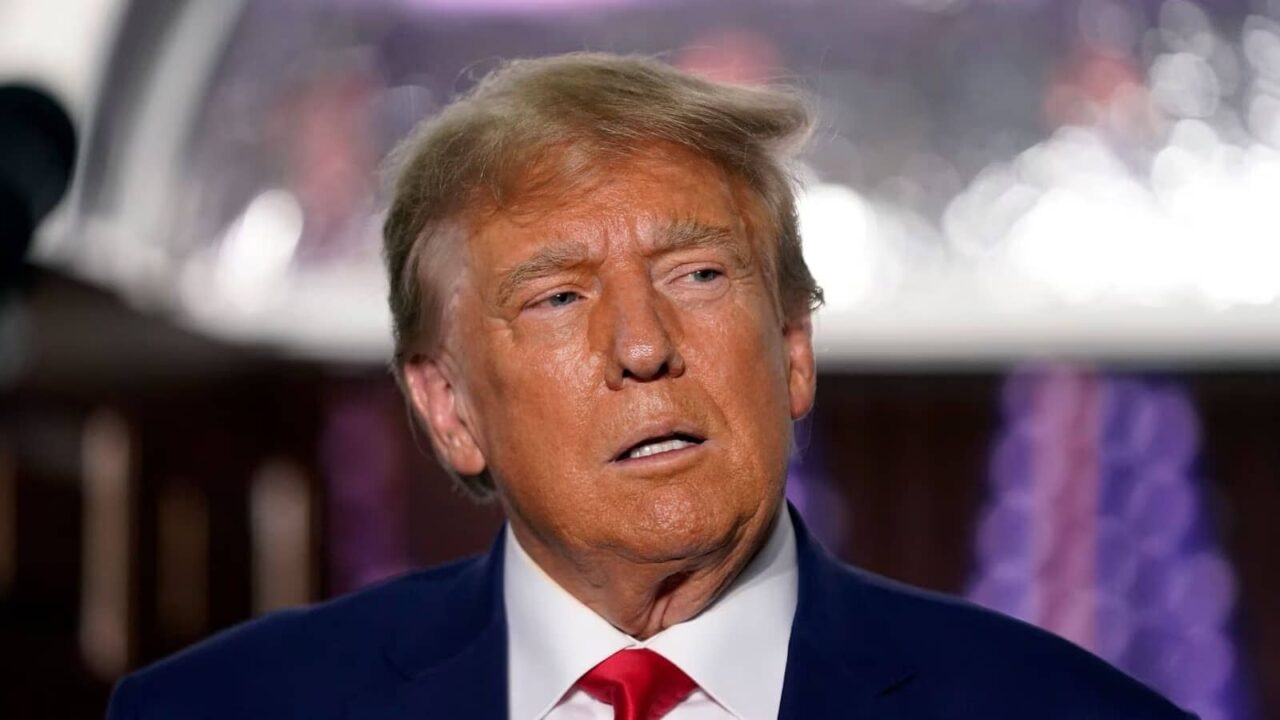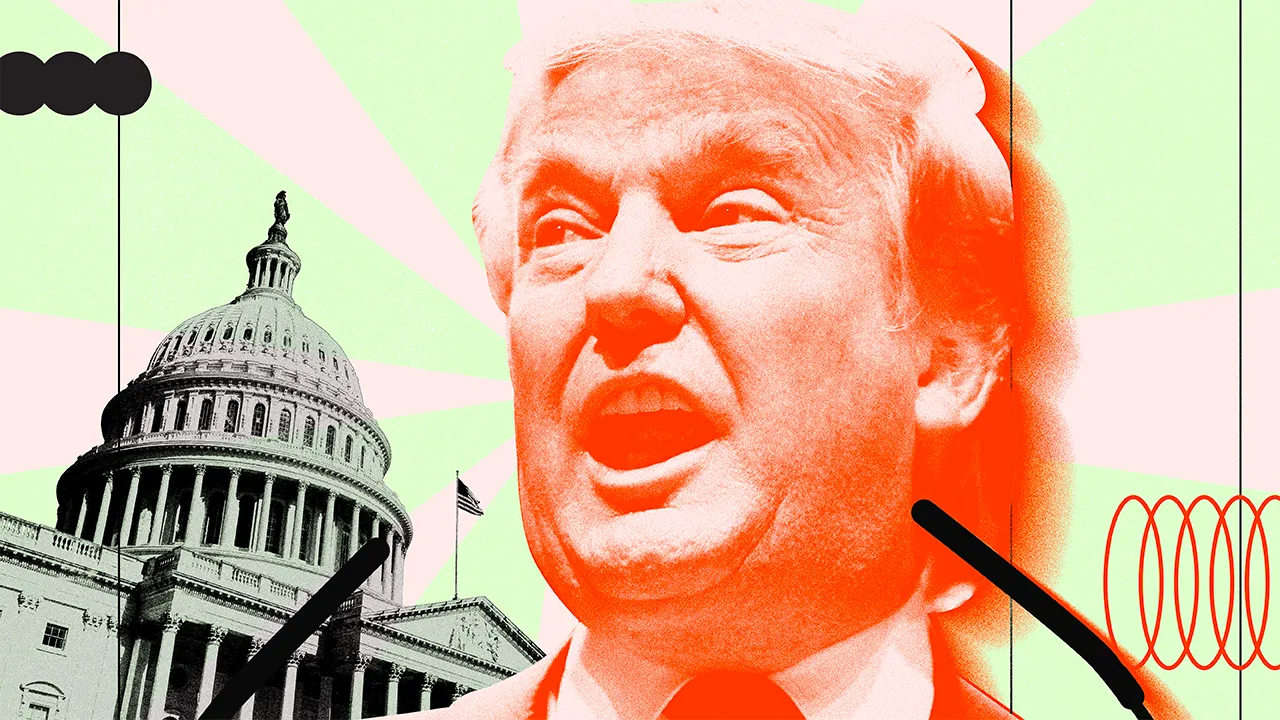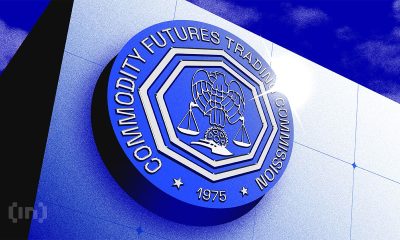Regulation
Crypto Titans Bet On Donald Trump Win For SEC Shake-Up

As the 2024 US presidential election approaches, crypto leaders are anticipating significant changes in regulatory oversight if Donald Trump returns to the White House. The crypto industry is dissatisfied with current administration’s stringent approach led by the Securities and Exchange Commission (SEC) under Chair Gary Gensler. This has prompted hopes among crypto advocates that a Trump presidency could usher in a more lenient regulatory environment.
How Donald Trump’s Win Could Reshape Crypto Regulations
Michael Selig, a partner at Willkie Farr & Gallagher LLP, suggests that a Trump administration could “reset and rethink the SEC’s crypto regulatory policy.” It could potentially resolve ongoing enforcement actions and investigations initiated during the Biden administration. This sentiment reflects a broader expectation within the crypto community that Trump’s return could lead to a reduction in regulatory pressure.
Under President Joe Biden, the SEC has intensified its scrutiny of the cryptocurrency sector, especially following the collapse of the FTX exchange in late 2022. The regulator has pursued numerous enforcement actions against exchanges and broker-dealers, alleging failures to comply with securities laws.
Gensler has asserted that many cryptocurrencies qualify as securities and should therefore adhere to SEC registration requirements. This position has sparked contention within the industry.
Despite some settlements, significant litigation involving major players like Ripple, Coinbase, Kraken, and Binance remains unresolved. Recently, he SEC has also closed investigations into Ethereum and Binance USD (BUSD), a USD-backed stablecoin issued by Paxos. However, the debate over whether specific tokens should be classified as securities persists.
A critical case in point is the SEC’s lawsuit against Ripple Labs Inc., which alleges that Ripple conducted an unregistered securities offering through the sale of XRP tokens, raising over $1.3 billion.
Although a federal judge ruled last July that XRP sales to retail investors did not constitute investment contracts, the case’s outcome remains uncertain. However, Ripple CEO Brad Garlinghouse recently indicated that a resolution could be forthcoming. He noted, “We expect a resolution very soon.”
Also Read: Charles Hoskinson Disputes Elon Musk & Robert Kiyosaki On Trump RNC Speech
SEC Reform After Trump Win?
The prospect of Donald Trump‘s victory has fueled speculation about a potential shake-up at the SEC. Austin Campbell, a blockchain consultant and adjunct professor at Columbia Business School, pointed out that a new administration could swiftly alter the SEC’s leadership.
“Remember, if Trump gets elected, the Republicans can immediately change who the chair is,” Campbell said. He predicts that this shift could lead to the settlement of many current cases, potentially ending the “highly variable decisions that are increasing confusion.”
However, some experts caution against assuming that a Trump presidency would automatically lead to a dramatic change in enforcement practices. Emily Meyers, general counsel at venture capital firm Electric Capital, argues that securities enforcement cases are typically “apolitical” and not subject to significant staff turnover with political shifts.
“It’s unlikely that any ongoing cases get dropped, especially those that are already being argued in federal court,” Meyers added, according to a Bloomberg report. Instead, she suggests that a new administration might focus on different types of enforcement cases rather than dismissing existing ones.
Hester Pierce To Replace Gary Gensler?
Similarly, Ji Kim, chief legal and policy officer at the Crypto Council for Innovation, also weighed in. He believes that while Donald Trump administration might alter the regulatory landscape, such changes would depend on the new leadership and the composition of the SEC commissioners.
“If President Trump were reelected and Chair Gensler steps down, we could see the current regulation-by-enforcement norm change,” Kim said. He further added, “However, that would depend on the leadership and the make-up of the commissioners — nothing is guaranteed.”
Meanwhile, Rep. French Hill believes that SEC Commissioner Hester Pierce could replace Gary Gensler after Trump’s Win. In a recent interview, the SEC Commissioner noted, “If the president changes, typically the chairman of the SEC will also change in response to that.” However, Pierce refrained from making any predictions about who would succeed Gensler.
Also Read: Donald Trump To Reportedly Announce Bitcoin Strategic Reserve
The presented content may include the personal opinion of the author and is subject to market condition. Do your market research before investing in cryptocurrencies. The author or the publication does not hold any responsibility for your personal financial loss.
Regulation
USDC Issuer Circle Set To File IPO In April, Here’s All

USDC issuer Circle is reportedly set to file its initial public offering (IPO) in April as part of the firm’s plans to finally go public. The stablecoin issuer is allegedly already working with top financial institutions to achieve this move.
Circle To File IPO In Late April
According to a Fortune report, Circle is looking to file its IPO in late April, although the listing period remains uncertain. The report noted that when a company files to go public, its shares usually begin trading four weeks later, indicating that the listing could occur in May. However, there is also a scenario where the IPO process could drag on for months.
The stablecoin issuer is reportedly working with investment banks JPMorgan Chase and Citi to achieve its long-anticipated IPO. The firm had previously tried to go public in 2021 under a SPAC arrangement with a shell company.
The US SEC failed to sign off on this arrangement back then, and the company eventually scrapped these IPO plans by the end of 2022 when the crypto exchange FTX collapsed and the broader crypto market experienced a downturn.
Revelation about Circle’s IPO plans comes just days after the stablecoin issuer partnered with NYSE’s parent company to explore USDC’s use in traditional finance (TradFi). Meanwhile, the USDC stablecoin recently launched in Japan following approval from the country’s regulator. Notably, USDC is the first and only global dollar stablecoin approved under Japan’s stablecoin framework.
An Easier Path Now For The Stablecoin Issuer
Circle will likely face less resistance for its IPO plans under the current SEC administration. Under acting Chair Mark Uyeda, the Commission has shown its willingness to work hand in hand with crypto firms, which was missing under Gary Gensler’s administration.
US SEC Chair nominee Paul Atkins has also shown his willingness to change the approach that Gensler’s administration adopted towards crypto firms. During his nomination hearing, the SEC Chair nominee promised to prioritize providing regulatory clarity for the industry.
Circle’s IPO listing would be the biggest since the top crypto exchange Coinbase went public in 2021. Interestingly, Coinbase owns an equity stake in the crypto firm.
The firm’s USDC is currently the second-largest stablecoin by market cap, only behind Tether’s USDT. The stablecoin industry is heating up as more financial institutions look to develop their own stablecoin.
Donald Trump’s World Liberty Financial recently revealed plans to launch its USD1 stablecoin, while asset manager Fidelity is also considering doing so.
Disclaimer: The presented content may include the personal opinion of the author and is subject to market condition. Do your market research before investing in cryptocurrencies. The author or the publication does not hold any responsibility for your personal financial loss.
Regulation
Japan Set To Classify Cryptocurrencies As Financial Products, Here’s All

Cryptocurrency investors in Japan are bracing for impact following a plan to reclassify digital assets as financial products. While the plan has elicited excitement from cryptocurrency enthusiasts in the Far East, the ambitious plan will have to scale several legislative hurdles.
Japan Targets Reclassification Of Cryptocurrencies As Financial Products
According to a report by Nikkei, Japan’s Financial Services Agency (FSA) is inching toward classifying cryptocurrencies as financial products. Per the report, the FSA intends to achieve the reclassification via an amendment to the Financial Instruments and Exchange Act.
Currently, digital assets in Japan are considered crypto assets conferred with property rights and seen as payment means. Under the FSA’s plans, cryptocurrencies in Japan will be treated as financial products in the same manner as traditional financial products.
The FSA says it will adopt a slow and steady approach toward the reclassification, carrying out “a private expert study group” to test the waters. If everything goes according to plan, the FSA will submit the amended bill to Parliament in early 2026.
The classification of cryptocurrencies as financial products will have far-reaching consequences for the local ecosystem. Experts say treating cryptocurrencies as financial products will bring Japan closer to a crypto ETF launch amid a changing regulatory landscape.
Furthermore, the move may lower current cryptocurrency taxation for local investors since existing capital market rules will apply to the asset class.
A Fresh Bill For Crypto Insider Trading Is Underway
Apart from the reclassification, the FSA disclosed plans for new legislation against insider trading. The move flows treating cryptocurrencies as financial products and will strengthen existing investor protection rules.
“It is a direction to establish a new insider trading regulation that prohibits trading based on unpublished internal information,” said the FSA. “We will develop laws to prevent unfair transactions.”
However, Japan’s cryptocurrency scene is heating up to a boil, driven by local and international players. Last week, stablecoin issuer Circle secured approval from the FSA for USDC with top exchanges set to list the stablecoin.
Japan’s Metaplanet has tapped Eric Trump to join its Strategic Board of Advisors as it continues to load up Bitcoin.
Disclaimer: The presented content may include the personal opinion of the author and is subject to market condition. Do your market research before investing in cryptocurrencies. The author or the publication does not hold any responsibility for your personal financial loss.
Regulation
Kentucky Governor Signs Off On ‘Bitcoin Rights’ Bill, Strengthening Crypto Protections


In what is being dubbed a major development in the crypto regulation space, the Governor of the US state of Kentucky, Andy Beshear, has signed the ‘Bitcoin Rights’ bill into law. The law promises to safeguard protections for Bitcoin (BTC) users.
Bitcoin Rights Bill Comes Into Effect
Crypto regulations continue to evolve under pro-crypto US President Donald Trump’s administration. In the latest development, Kentucky has become the newest state to enshrine protections for digital asset users.
In an X post published on March 24, crypto advocacy group Satoshi Action Fund announced that Governor Beshear had signed the much-anticipated Bitcoin Rights bill into law. The post stated:
The right to self-custody, run a node, and use of digital assets is now protected for millions of Americans without fear of discrimination.
The bill was first introduced to the Kentucky House by Rep. Adam Bowling on February 19. According to the bill’s description, it seeks to safeguard users’ rights to use digital assets and self-custody wallets. Additionally, it aims to prohibit local zoning changes that discriminate against crypto mining operations.
The legislation outlines guidelines for running a digital asset node and excludes digital asset mining from money transmitter license requirements. It also clarifies that crypto mining or staking is not considered an offer or sale of securities.
On February 28, the bill passed Kentucky’s House of Representatives with a unanimous vote of all 91 representatives in favor. It later passed the Kentucky Senate on March 13, receiving backing from all 37 senators.
Kentucky’s proactive stance toward cryptocurrencies isn’t new. Earlier this year, the state became the 16th US state to introduce legislation seeking to create a Bitcoin strategic reserve.
Meanwhile, neighboring state Arizona is also joining the crypto movement. A recent X post by Bitcoin Laws revealed that Arizona’s House Rules Committee has passed two Bitcoin reserve bills — SB1373 and SB1025. These bills will now head to a full floor vote.
Renewed Optimism Under Trump Administration
Following Trump’s victory in the November presidential election, cryptocurrency regulations in the US are evolving rapidly, with many states introducing legislation aimed at strengthening their digital asset ecosystems and attracting crypto businesses.
Positive changes in crypto regulations are encouraging industry businesses to expand. For instance, leading crypto trading platform Coinbase recently announced plans to hire 1,000 employees in the US.
The Trump administration has also witnessed several lawsuits being dropped against major crypto entities, including Kraken, Coinbase, Gemini, and others. At press time, Bitcoin trades at $87,399, down 0.2% in the past 24 hours.

Featured Image from Unsplash.com, chart from TradingView.com

Editorial Process for bitcoinist is centered on delivering thoroughly researched, accurate, and unbiased content. We uphold strict sourcing standards, and each page undergoes diligent review by our team of top technology experts and seasoned editors. This process ensures the integrity, relevance, and value of our content for our readers.
-

 Altcoin24 hours ago
Altcoin24 hours agoCardano Price Eyes Massive Pump In May Following Cyclical Patern From 2024
-

 Market20 hours ago
Market20 hours agoBitcoin Bears Tighten Grip—Where’s the Next Support?
-

 Market19 hours ago
Market19 hours agoEthereum Price Weakens—Can Bulls Prevent a Major Breakdown?
-

 Market17 hours ago
Market17 hours agoDogecoin (DOGE) Bulls In Trouble—Can They Prevent a Drop Below $0.15?
-

 Bitcoin10 hours ago
Bitcoin10 hours agoBTC Price Rebound Likely as Long-Term Holders Reenter Market
-

 Market16 hours ago
Market16 hours agoBitcoin Price Nears $80,000; Fuels Death Cross Potential
-

 Market10 hours ago
Market10 hours ago3 Altcoins to Watch in the First Week of April 2025
-

 Ethereum15 hours ago
Ethereum15 hours agoEthereum Is ‘Completely Dead’ As An Investment: Hedge Fund























✓ Share: